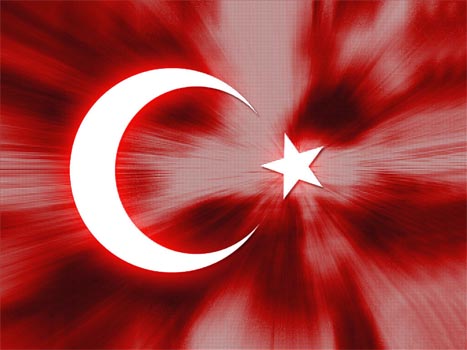Thousands protest arrest of Turkish academics on coup suspicions
 Ankara - Thousands of people gathered in Ankara on Saturday in support of a number of academics who were charged on Friday of being members of the so-called Ergenekon conspiracy to overthrow Turkey's moderate Islamist government.
Ankara - Thousands of people gathered in Ankara on Saturday in support of a number of academics who were charged on Friday of being members of the so-called Ergenekon conspiracy to overthrow Turkey's moderate Islamist government.
Waving Turkish flags and shouting slogans such as "Turkey is secular and will remain so," the group filled the large open square outside of the mausoleum of the founder of the Turkish republic, Mustafa Kemal Ataturk.
In the crowd were many students and academics from Baskent University whose rector, Professor Mehmet Haberal, was one of eight people charged with membership of the Ergenekon conspiracy.
Haberal, three former university rectors, other academics and two members of secular non-governmental organizations were charged Friday morning with being involved in the Ergenekon plot, which allegedly aimed to stage a nationalist, secular coup.
The group also allegedly had plans to carry out assassinations of political and social leaders, including Prime Minister Recep Tayyip Erdogan, former Chief of General Staff Yasar Buyukanit and Nobel Prize-winning author Orhan Pamuk.
It was through these assassinations and other destabilizing attacks that the group hoped to create the chaos necessary to allow the military to launch a coup in 2009 on the basis that it was bringing order back to society, the Turkish authorities allege.
Ergenekon is the name that prosecutors allege the group called themselves and refers to a mythical Turkic homeland in central Asia.
The latest arrests in connection to the Ergenekon case bring the total number charged to almost 150 people.
Those taken into custody earlier are currently on trial in Istanbul for their alleged involvement in the coup plot.
Prosecutors at the trial have said that the staunchly secularist and nationalist group was angry at what they believe is the government's watering down of secular laws and its erosion of national sovereignty in Turkey's bid to join the European Union.
Opposition figures have described the trial as a witch hunt carried out by the government as revenge for a failed attempt to have the ruling Justice and Development Party (AKP) closed down or as a way to take attention away from its alleged attempts to undermine the secular state and implement Sharia (Islamic) law. (dpa)